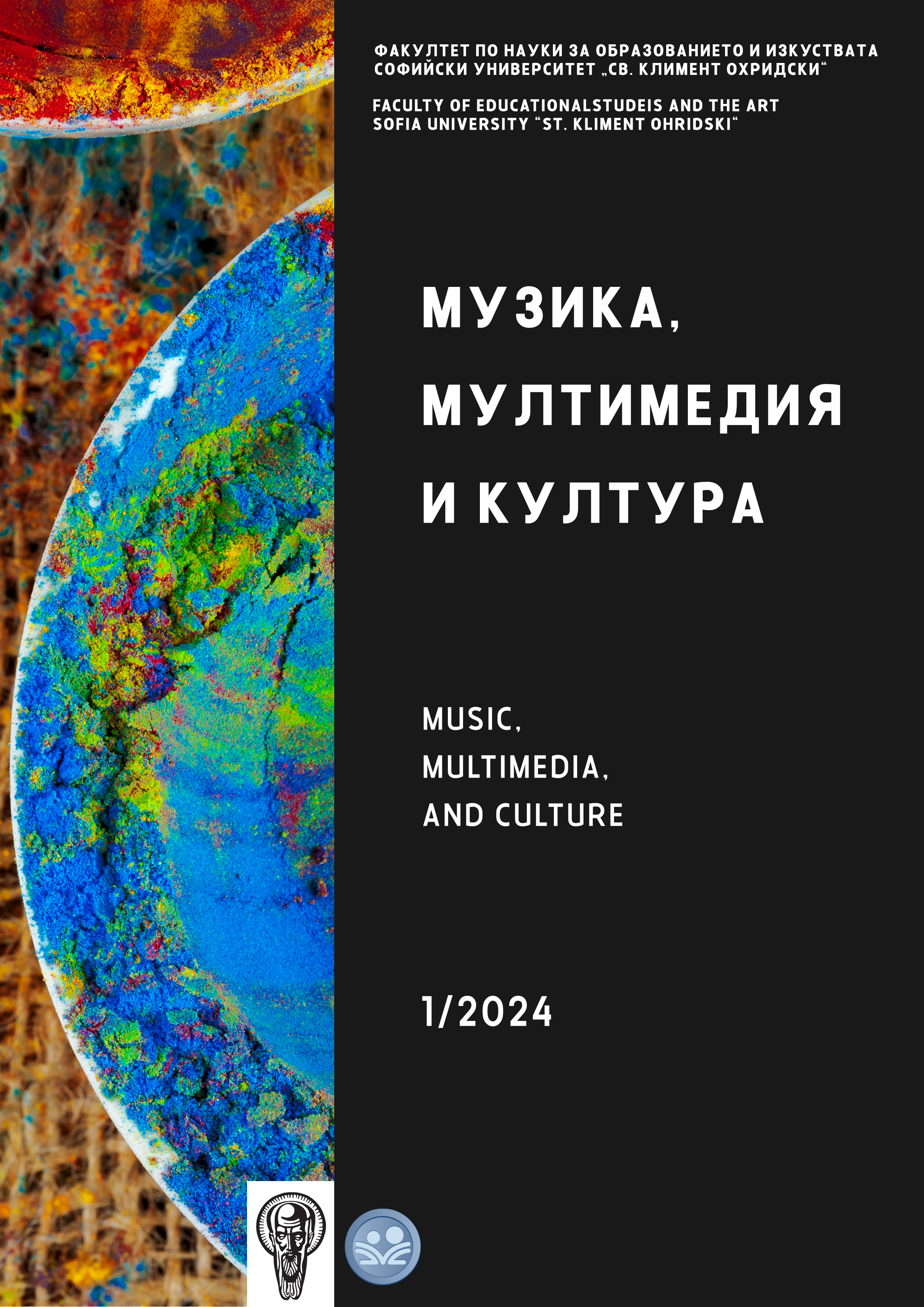Challenging the audience
innovative presentation of classical music
Keywords:
music education, classical music, tradition, innovationAbstract
The resistance to classical music of new generations can be overcome by using the innovative potential of music education institutions in the formation of musical taste. Innovations in music education most effectively avoid conservatism masquerading as tradition. The review of some main authors helps to outline the circle of the main agents of musical education with a direct influence on the perception of classical music. Their innovation potential can be defined as fundamental in this context. These are the Institutions of higher musical education, Music creators (composers and performers), the State with its cultural policy, the Institutions of secondary education, the Family, Specific institutions, the Market and Society with its culture. Technology makes it possible for them to find opportunities to move from “educational pressure” to an effective approach to teaching in this direction in a number of ways. The success of this approach contributes to bringing the sound of the orchestra and the complex polyphonic line of classical music closer to different audiences and, in turn, contributes to the modernity of the tradition preserved in the new age of high technology and artificial intelligence as a new social reality.
Sources:
Bizhkov, Kraevski 1999: Bizhkov, G., Kraevski, V. Metodologia i metodi na pedagogicheskite izsledvania, UI „Sv. Kl. Ohridski“
Todorova 2014: Todorova, M. Klopkata na izostavaneto: modernost, temporalnost i iztochnoevropeyskiyat natsionalizam – V: Liberalen pregled https://www.librev.com/index.php/prospects/science/2295-2014-01-27-13-43-30
Karaatanasov 2016: Karaatanasov, V. Metodicheski praktiki v obuchenieto po kompyutaren notopis i prilozhna orkestratsia. Avtoreferat.
Bennett 2008: Bennett, D. Understanding the classical music profession: The past, the present and strategies for the Future. Routledge.
European Commission 2014: Horizon 2020 in brief. European Union. https://op.europa.eu/en/publication-detail/-/publication/ff01eb01-755b-4401-95be-6a10701c6d28
European Commission 2021: Creative Europe 2021–2027. European Union. https://ec.europa.eu/culture/sites/default/files/2021-06/creative-europe-2021-2027-brochure-web.pdf
Frith 2011: Frith, S. Creativity as a social fact. In D. Hargreaves, D. Miell In: R. MacDonald (Ed.), Musical imaginations: Multidiscipliniary perspectives on creativity, performance, and perception (pp. 62–72). Oxford University Press.
Lawrence, Buchanan 2017: Lawrence, T. B., Buchanan, S. Power, institutions and organizations. – In: R. Greenwood, C. Oliver, T. B. Lawrence, R. E. Myer (Eds.), The SAGE handbook of organizational institutionalism (pp. 477–506). Sage.
O’Neill 2019: O’Neill, S. Developing leadership capacities with generation Z students in higher music education. – In: D. Bennett, J. Rowley & P. Schmidt (Eds.), Leadership and musician development in higher music education (pp. 87–102). Routledge.
Rowley, Rowley, Bennett, Dunbar-Hall 2015: J., Bennett, D. & Dunbar-Hall, P. Creative teaching with performing arts students: Developing career creativities through the use of e-Portfolios for career awareness and resilience. – In P. Burnard, E. Haddon (Eds.), Activating diverse musical creativities: Teaching and learning in higher music education (pp. 241–259). Bloomsbury.
Schediwy , Loots, Schediwy, Bhansing 2018: L., Loots, E. & Bhansing, P. With their feet on the ground: A quantitative study of music students’ attitudes towards entrepreneurship education. Journal of Education and Work, 31(7–8), 611–627. https://doi.org/10.1080/136390.80.2018.1562160
Ski-Berg 2022: Ski-Berg, Veronica. Between innovation and tradition: The balancing act of the ‘protean’ music student. Norwegian Academy of Music, Norway. URL: https://nrme.no/index.php/nrme/article/view/3699/8054
Schumpeter 1934: Schumpeter, Joseph. The theory of economic development. Harvard University Press.
Sogner 2018: Sogner, K. Creativity, innovation, and the production of wealth. – In E. Heath, B. Kaldis. In: A. Marcoux (Eds.), The Routledge companion to business ethics (pp. 326– 342). Routledge.






